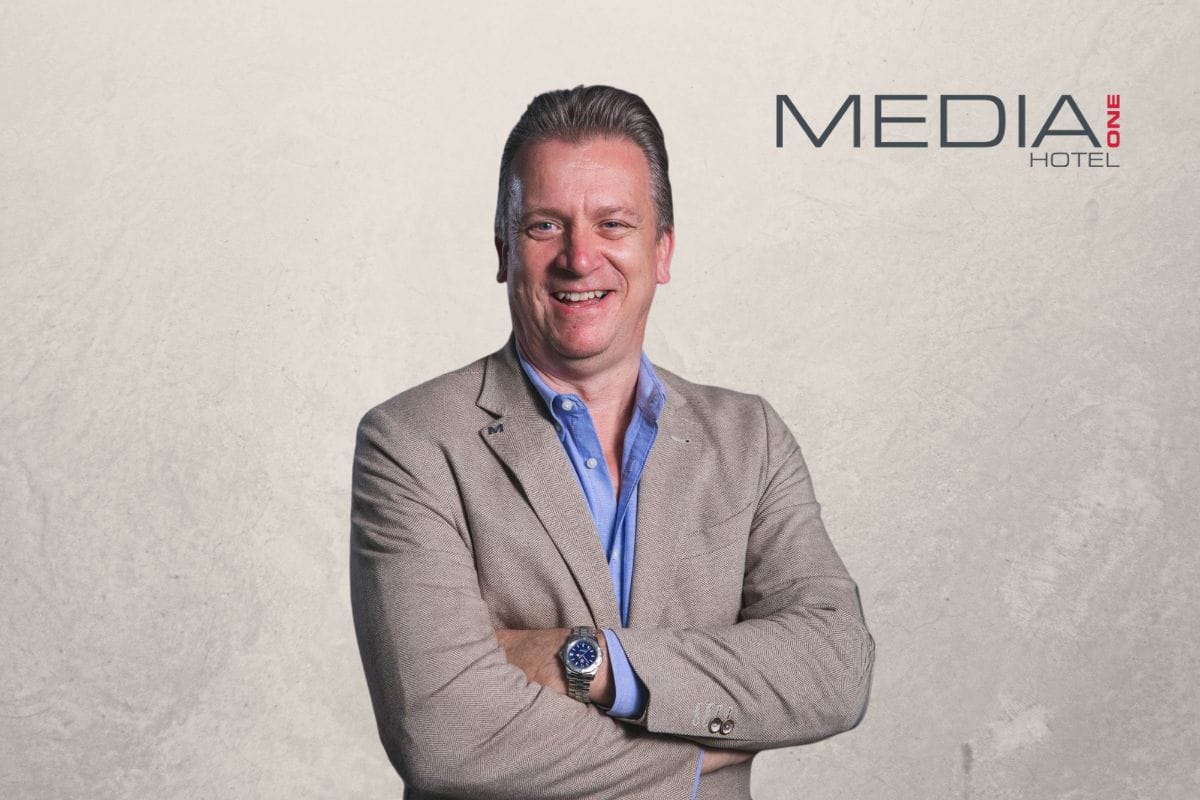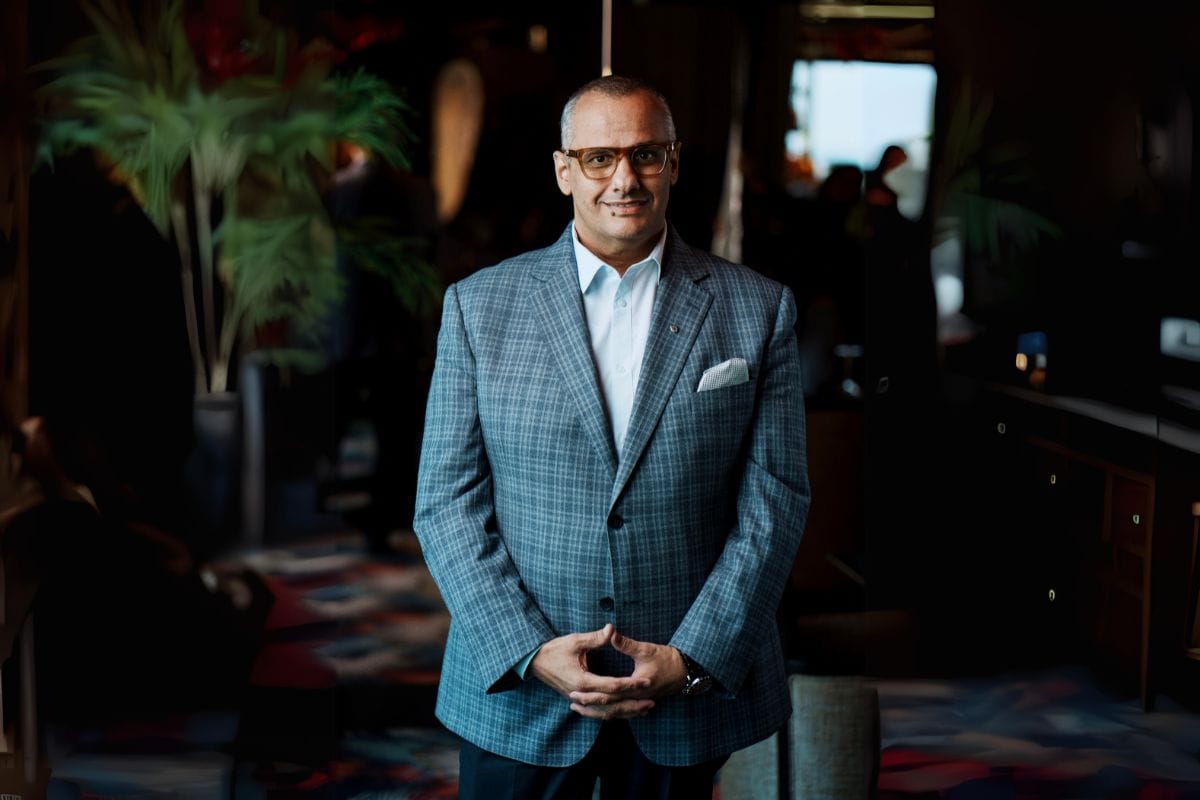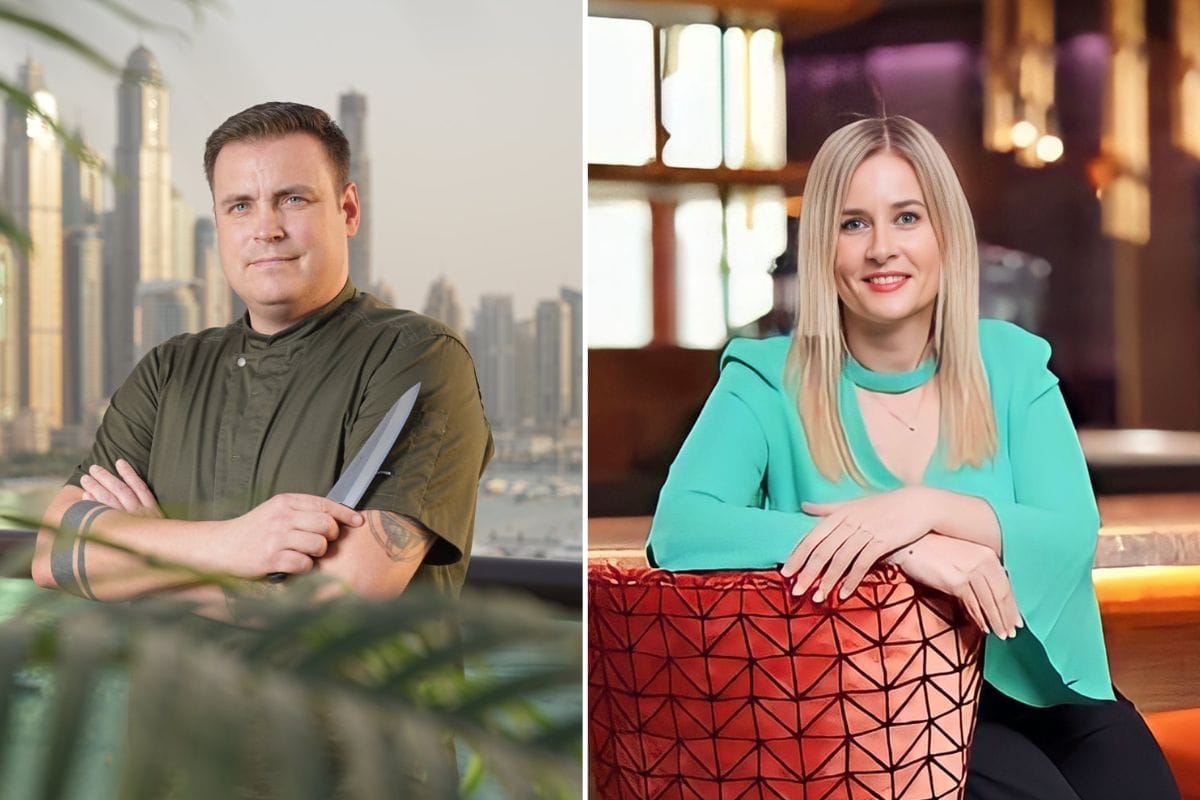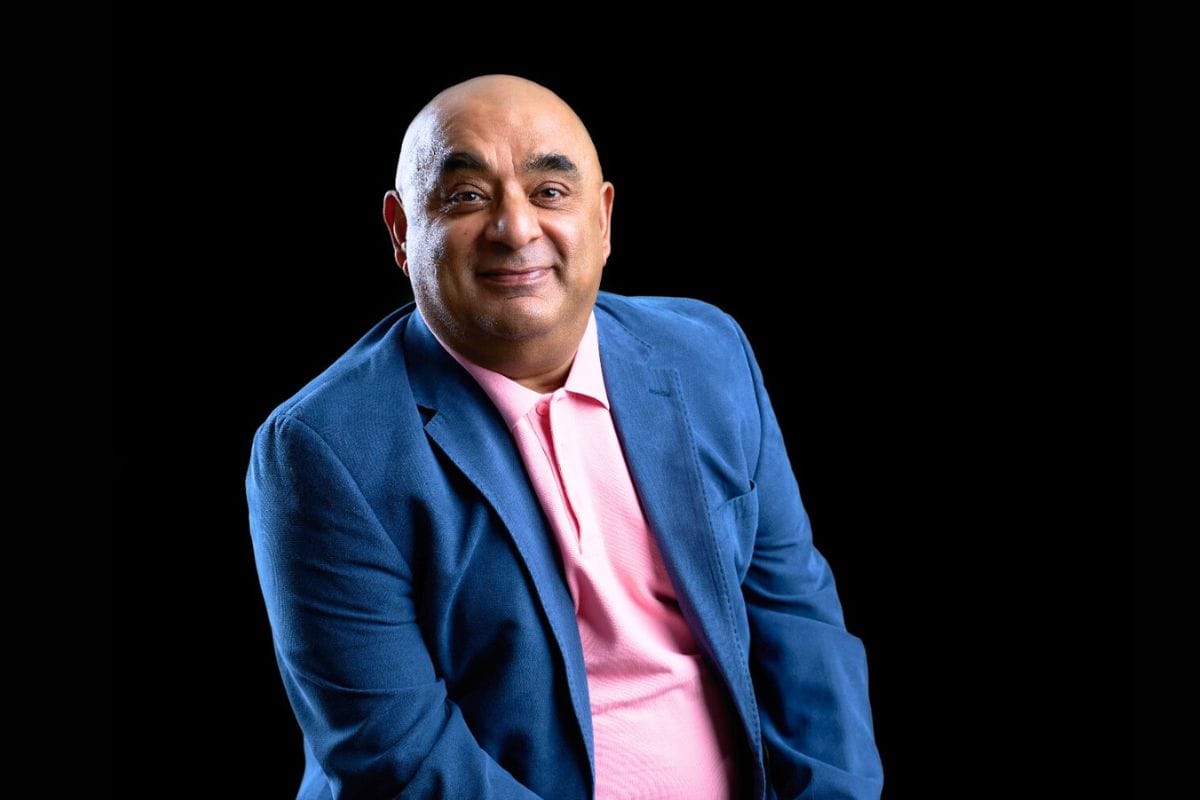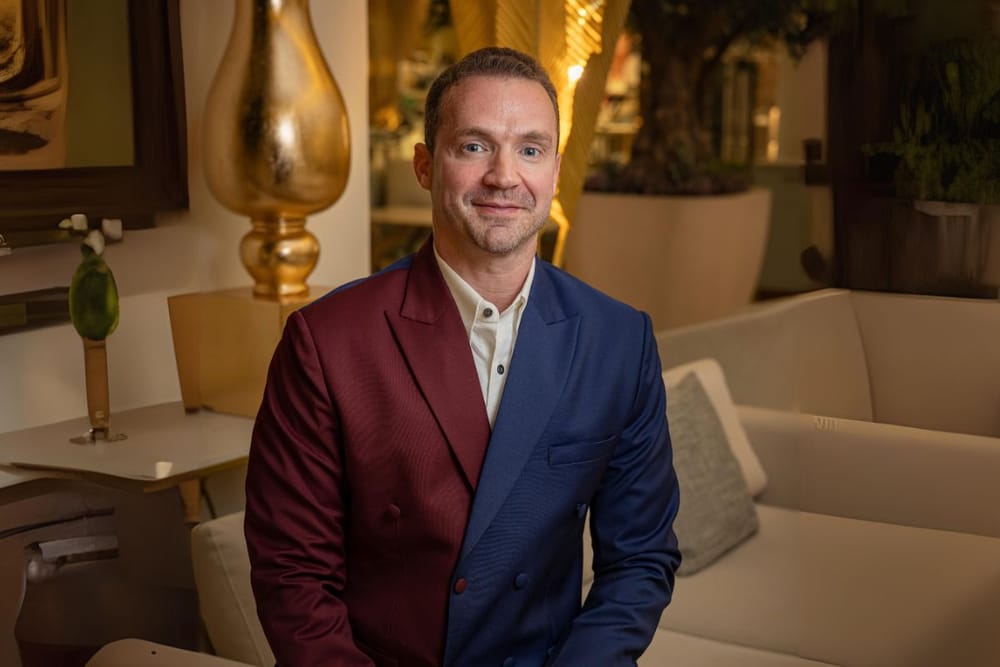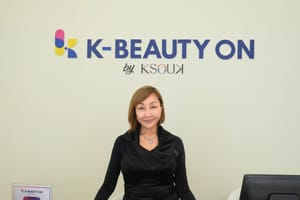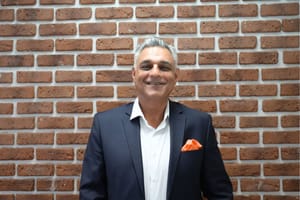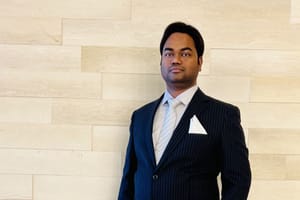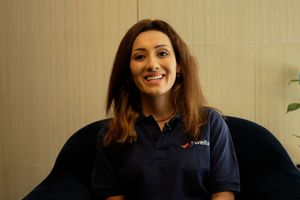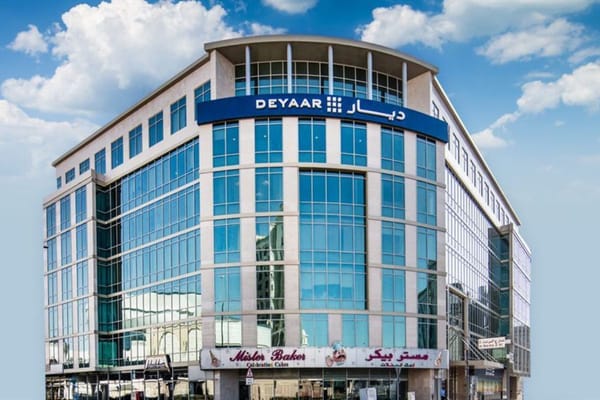Christian Kiefer, CEO and Founder of Spa Wellness Project Management is a trailblazer in the Spa and Leisure industry, leveraging over two decades of expertise and a steadfast commitment to innovation. His brands, Rayya Wellness, and Wellbeings Holistic Healing, have redefined integrative hotel wellness concepts, securing prestigious awards such as "The Best Wellness Brand in the Region."
Christian's dedication to making wellness accessible and affordable for all is evident in his co-creation of Rayya Wellness on the iconic Palm Jumeirah, under the Patronage of HH Sheikh Rashid Al Nuaimi. Recognized as the "Best Innovator" at the World Spa & Wellness Convention 2024, Christian's visionary leadership continues to shape the future of the Spa and Wellness landscape in the GCC. With a portfolio of 25 hotels and several new openings slated for 2024, Christian's ethos of creating personalized, ethical, and sustainable wellness solutions drives his success. It cements his brands as pillars of excellence and innovation in the industry.
In this interview, Christian shares insights into his motivation for founding Spa Wellness Project Management, the impact of his educational and professional background, the challenges and lessons learned from his unconventional career choices, and his vision for the future of the wellness industry.
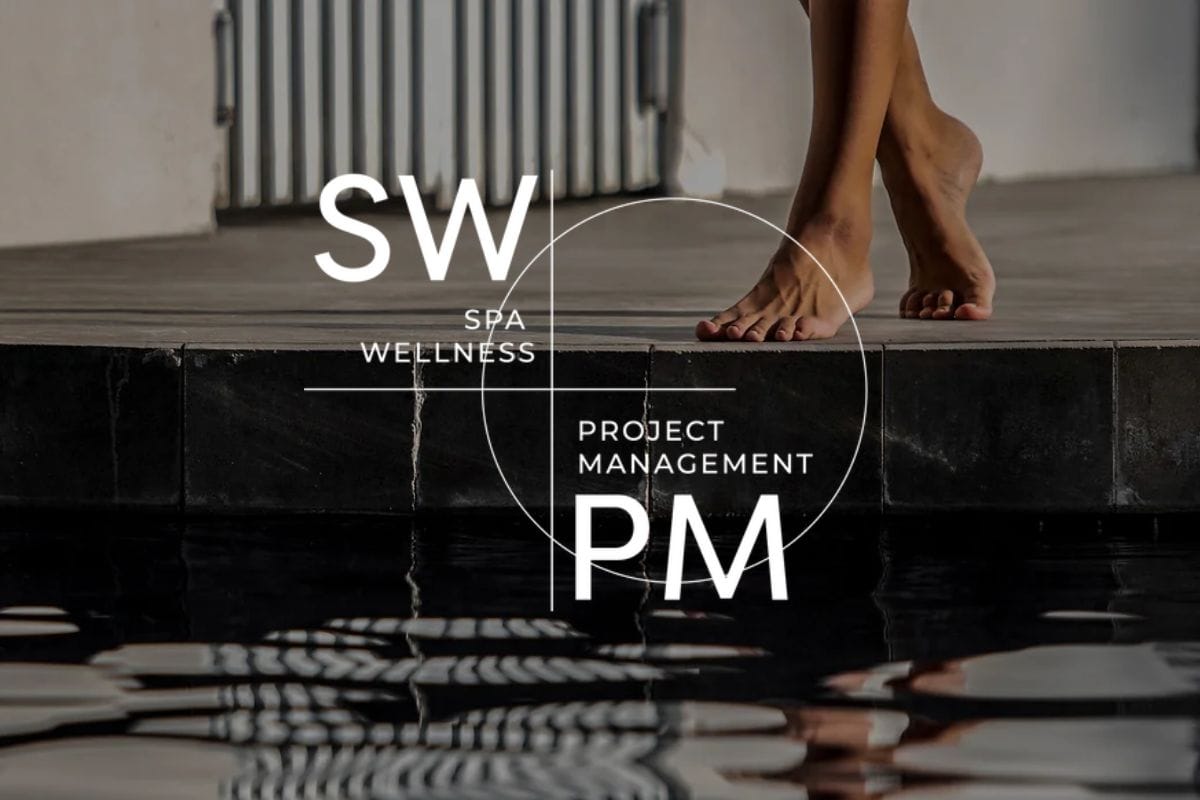
What motivated the founding of Spa Wellness Project Management, and how does your vision differentiate from other wellness and spa companies in the industry?
Spa and wellness are essential aspects of people's lives today. It requires significant motivation to understand the importance of caring for both mental and physical well-being. If you have a passion for this industry, you can achieve great success.
That's always been my goal—to create something bigger and better that makes a meaningful impact on people's lifestyles. This drive to improve lives and promote health and well-being is why we grew so quickly.
I don't mean to be blunt, but sometimes guests are seen as mere dollar signs on a treatment bed or walking through the door. We operate differently. We work from the heart, focusing on creating personalized experiences that enhance individuals' lives, wellness, and happiness. In Dubai, word of mouth is incredibly powerful. If you do things right, people will talk about it during their brunches, sharing their experiences. Whether the feedback is positive or negative, word spreads quickly.
How has your educational background and previous work experience contributed to your success as CEO and Founder of Spa Wellness Project Management?
That's an important question because my career began in a completely different field as an industrial sales manager in Germany. I worked for Villeroy & Boch, a historic company founded in 1748, where I led logistics and managed a small team. However, I found little fulfillment in that role. On weekends, I DJed, living for those moments as my 9-to-5 job felt repetitive and stagnant. This lack of purpose drove me to seek a better, more conscious lifestyle. I attended evening school in Hamburg to become a wellness practitioner. To the surprise of my parents, I told them, "I'm a therapist now. I work with energy and people," which was quite a shift for them.
I quit my industrial sales manager job, packed up my life, and started working on cruise ships. This journey was steep but rewarding as it combined my industrial sales management background with wellness education and holistic therapies. I completed my spa management degree in Miami, Florida, and continued working on cruise ships, applying and refining the practices I had learned.
This diverse experience eventually led me to Dubai, where I leveraged my skills and knowledge to establish Spa Wellness Project Management, successfully bridging my industrial past with my passion for wellness.
What propelled you to take the unorthodox decision to work on cruise ships, and what were the biggest lessons you learned during this time?
People often say that those who work on cruise ships are either running away from something or have something wrong with them. To be honest, maybe I was running away from something. Looking back, I was very unhappy in Germany—not because Germany is bad, but because I felt different, like an oddball. I was always cheerful, while those around me seemed stuck in a rat race, which affected their behavior, demeanor, and mentality. I found it very mechanical and draining from an energy perspective.
Even when I was young, I traveled a lot, investing all my savings into travel. I noticed that people in the poorest places were often the happiest. I had this travel bug and always wanted to see the world. After finishing my degree as a wellness practitioner, I moved to London to prepare for my time on cruise ships with Steiner Leisure. It was the perfect opportunity to combine my love for travel with my new profession. I packed up my life in Germany and worked on cruise ships, getting paid to travel, see the world, and do what I loved.
Life on ships was extreme and very stressful, but also very humbling. You are stripped down to nothing—you have a small bunk bed, a curtain for privacy, and a tiny cupboard. Despite this, the three and a half years I spent on ships were the happiest times of my life. I had no material possessions, just friends, good food, new places, and fantastic conversations. It was an emotional rollercoaster with relationship dramas and ship dramas, like a big soap opera. It showed me that you don't need money or material things to be happy; all you need is a good social environment, friends, and health.
We also noticed a big need for education on the American cruise ships, so we, as managers, started doing seminars for the guests. With audiences of 3,000 to 6,000 passengers, these seminars were a great way to reach out. At 25 years old, I already had a cruise ship target of $1 million per month, managing many spas, salons, fitness centers, and the overall recreational floor for Steiner Leisure, now Steiner Transocean.
This experience polished me and prepared me for my future career. When I left the cruise ships, I felt ready and prepared for new challenges. Coming to Dubai, where people often find life stressful, I found it manageable compared to my time on cruise ships. I was very happy and humbled to have had this experience, which helped me navigate the Dubai lifestyle and its ups and downs.
Reflecting on your statement that those years were the happiest of your life, would you ever consider revisiting that experience?
No, I don't have the energy levels for that anymore. That's the answer to your question. I still have friends who work on ships. A couple of years ago, I went on the Costa Luminosa to visit one of my buddies. We did the whole thing—went to the crew bar until 3 or 4 a.m., and after two days, I found myself ordering takeaway and going to bed at 11 p.m. My friend asked, “What's wrong with you?” I just couldn't do it anymore; my energy levels weren't there.
I see life as a book. I believe it's very wrong to go back to chapter three when you're already on chapter six. It doesn't make any sense. Many people I've met have been offered to return to their previous employers for bigger packages and certain roles, but for me, that feels like a regression. You should always move forward in life and have a clear goal of what you want to do next.
If you link your life to commercial greed or think, "Oh my God, I'm getting 10,000 dirhams more, so I'll move back to the same environment with the same people," I don't see any value in that. For me, it's always been full speed ahead.
How do you ensure the quality of your services, given your emphasis on customer care and valuing excellence as key differentiators in your business?
I've been fortunate to have had incredible mentors throughout my career, such as Jeremy McCarthy and Andrew Gibson, who I deeply admire. For instance, Jeremy took me to Abu Dhabi to open the St. Regis Nation Towers. St. Regis is synonymous with quality. I remember wearing flamboyant Ted Baker flower shirts, and my GM told me, "You need to cut this out. You need to wear black and white and a tie." At first, I thought, "Oh my God, I cannot do that." But gradually, my wardrobe shifted from colorful to basic, with grey and black schemes. I realized that minimalism and quality are closely linked, as reflected in many clean, strong brands.
At St. Regis, I learned to focus entirely on quality—not just in treatment deliverables and protocols but also in embedding quality into the entire guest journey. When I was appointed Area Director for Starwood Middle East, well before the merger, I also took on tasks for other hotels. This exposure to five-star quality, along with my experience with EMAAR at The Palace, The Old Town, instilled in me the importance of living and breathing quality every day.
When I started my entrepreneurial journey, this focus on quality naturally transitioned over. It originates from my five-star luxury hotel background. If you're a proud hotelier and believe in the ambition and passion of the industry, that dedication to quality will always be in your blood.
I'm also very self-critical and particular. I'm one of those people who runs a finger over picture frames and wonders, "Where's this dust coming from?" Maintaining high standards is second nature to me.
Can you elaborate on the training and qualifications required for your staff? How do you ensure they are up-to-date with the latest wellness and spa techniques?
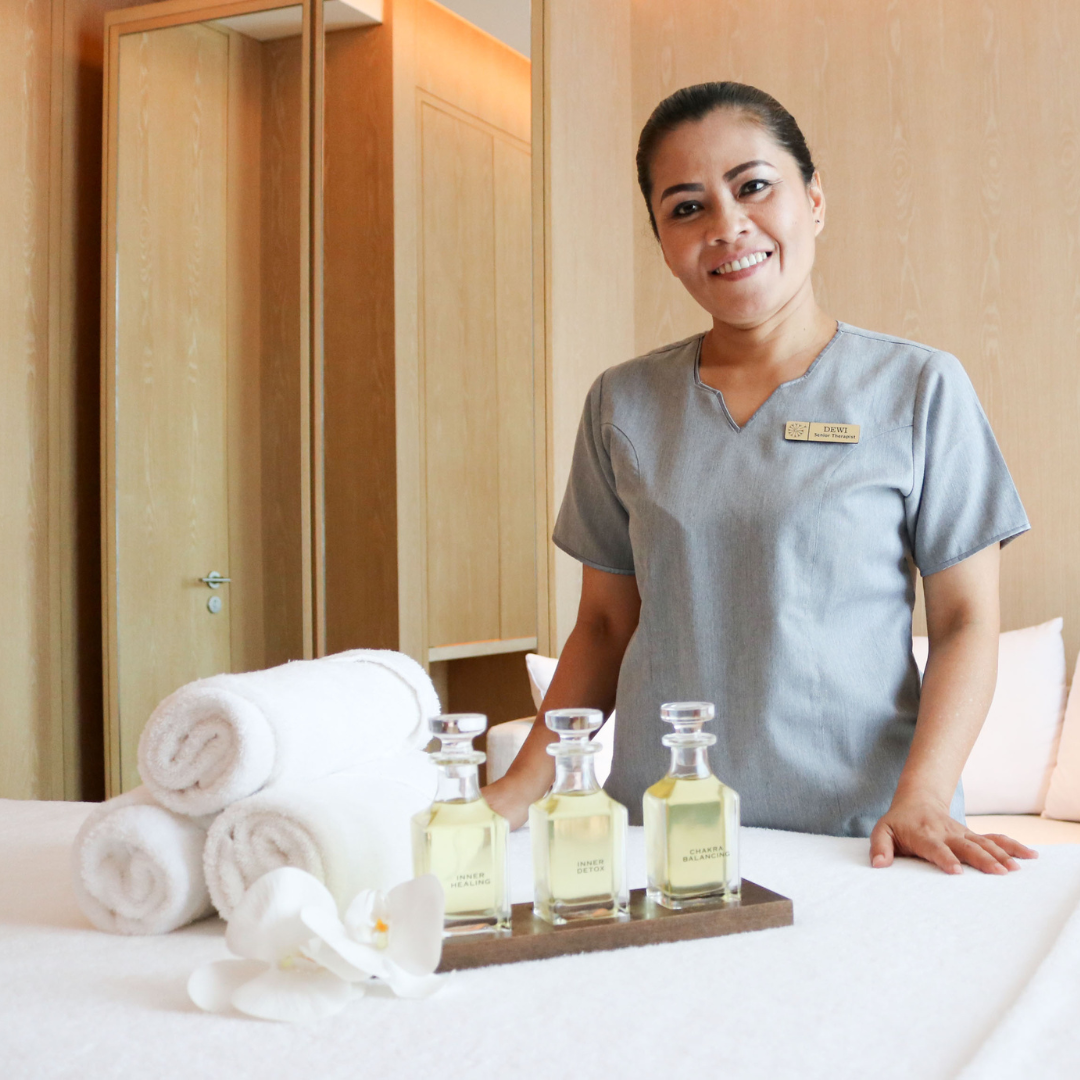
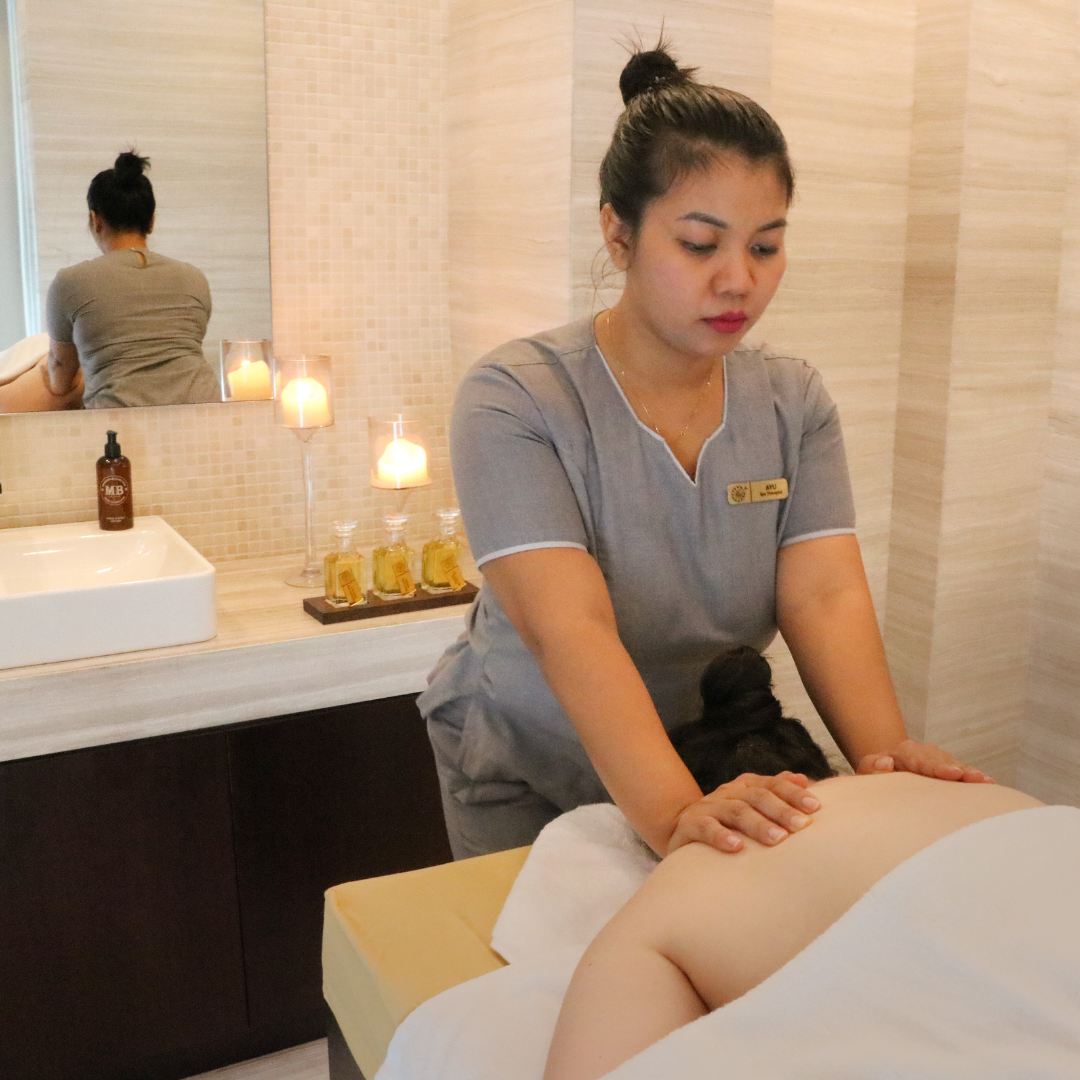
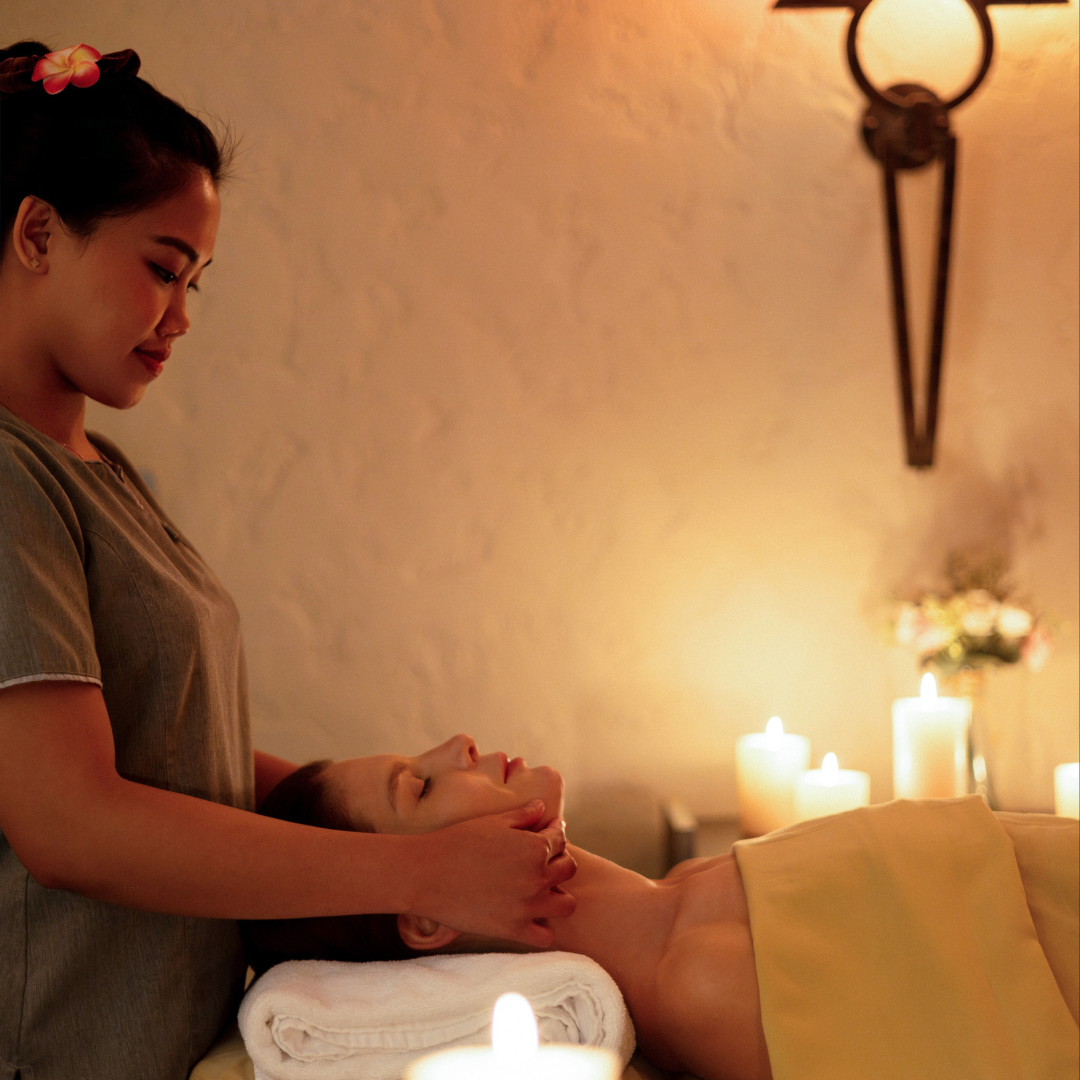
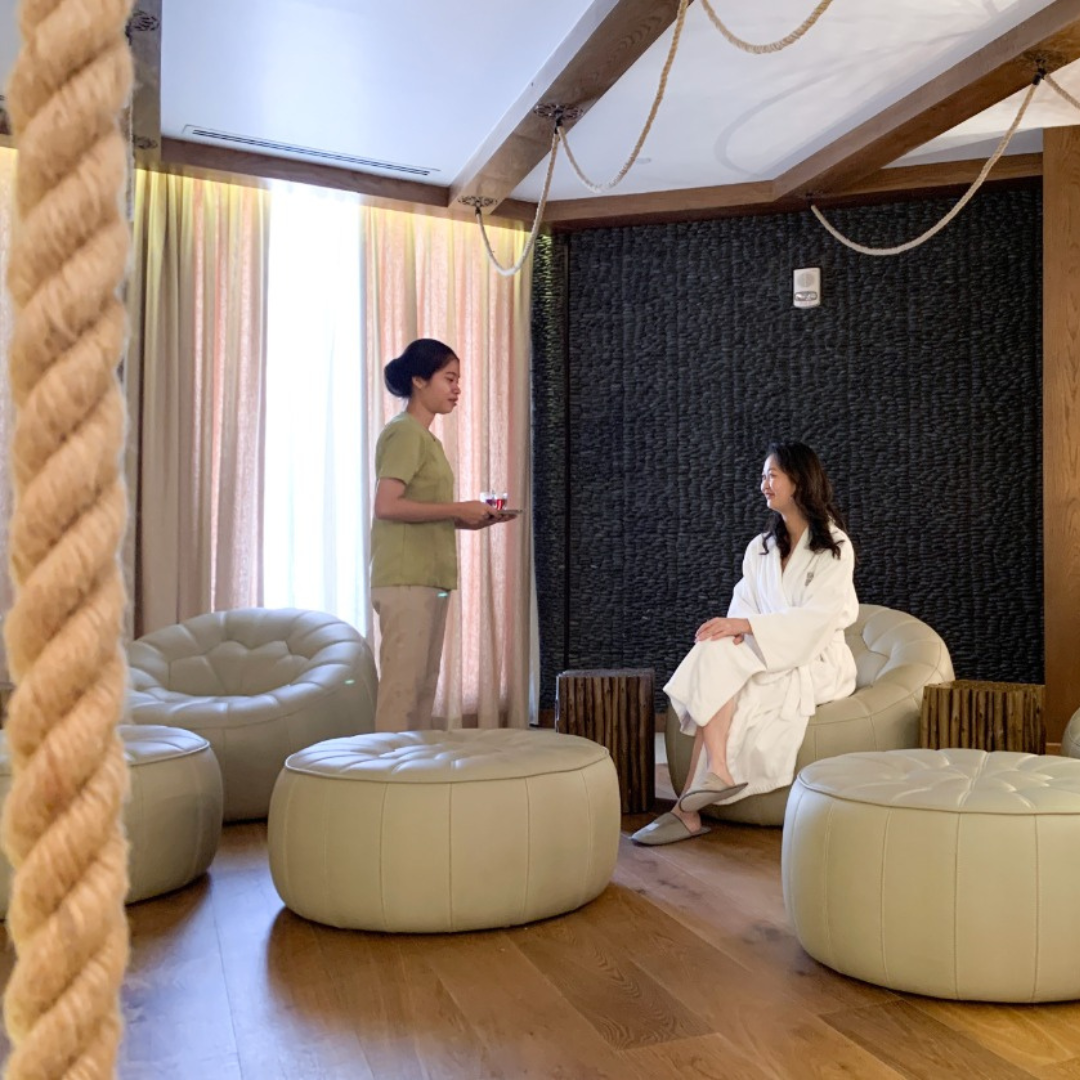
This question is challenging to answer because our roles require various skill sets and qualifications, including supervisors, managers, assistant managers, office staff, receptionists, therapists, and attendants. Each role has different requirements.
I no longer conduct interviews unless it's for management and upper-level senior staff who need close evaluation. My operations team handles interviews for line-level positions. However, a consistent benchmark we look for is kindness, energy, and professionalism. It's easy to identify professionalism. For example, if someone comes to an interview chewing gum, regardless of their skills, I would never hire them. Body language and presentation are also crucial indicators.
On cruise ships, we had a director from the US head office who was very strict. If someone had a sloppy uniform or their hair wasn't done properly, she would terminate them on the spot. While she was feared, her principle that a sloppy appearance equates to a sloppy performance holds true. If someone comes to an interview looking disheveled, it often reflects their work ethic.
Kindness is the number one trait we look for. The spa environment should be filled with love, kindness, and happiness.
This culture is essential because it impacts how guests feel. If candidates come to an interview smiling and with a fantastic aura, they are already halfway there. However, we also need professionalism and proper self-presentation. It’s not just about appearance but about how they prepare themselves for the interview.
While each role requires specific qualifications, the core values of kindness, energy, and professionalism are non-negotiable. We ensure our staff stays up-to-date with the latest wellness and spa techniques through continuous training and fostering a culture of excellence.
With the growing number of wellness and spa options available, what unique services or experiences does Spa Wellness Project Management offer to stand out in a crowded market?
Dubai has an overabundance of spas, leading to a saturated market with many offering similar services. This isn't necessarily the fault of junior spa managers or directors but stems from a lack of education and attention to detail in developing new spa concepts and staying updated with trends. Many simply move from property to property, replicating spa menus they've seen or used before. This lack of innovation results in a market filled with repetitive treatments and setups.
At Spa Wellness Project Management, we aim to become the region's leading hospitality wellness provider, not just another spa. Our brand stands out because we offer comprehensive holistic spa services while focusing on overall wellness. We employ healers, provide neuro-linguistic programming, and offer health and lifestyle consultations. We support individuals after traumatic incidents with sessions from healers and assistance for social anxieties and societal reintegration.
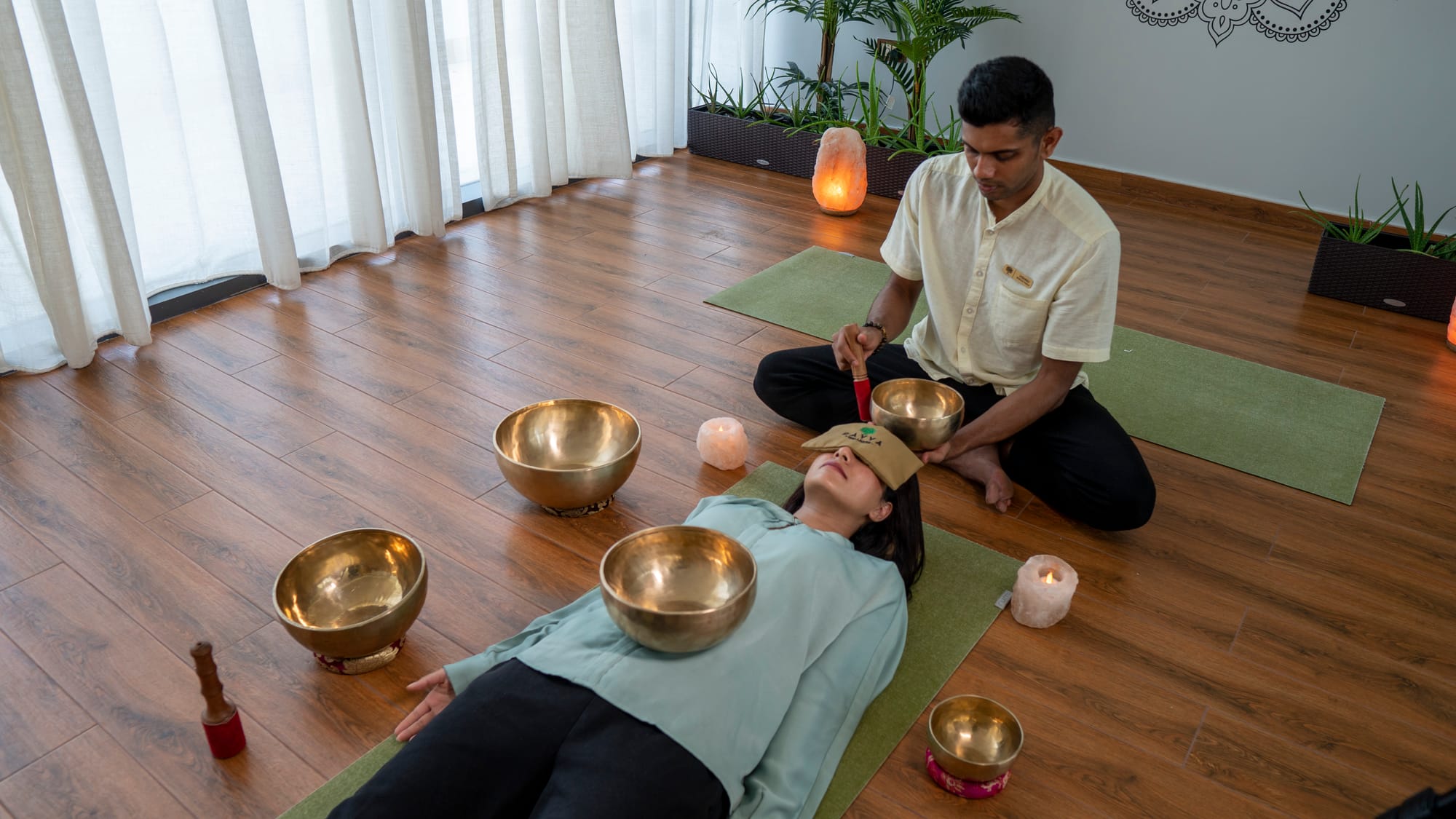
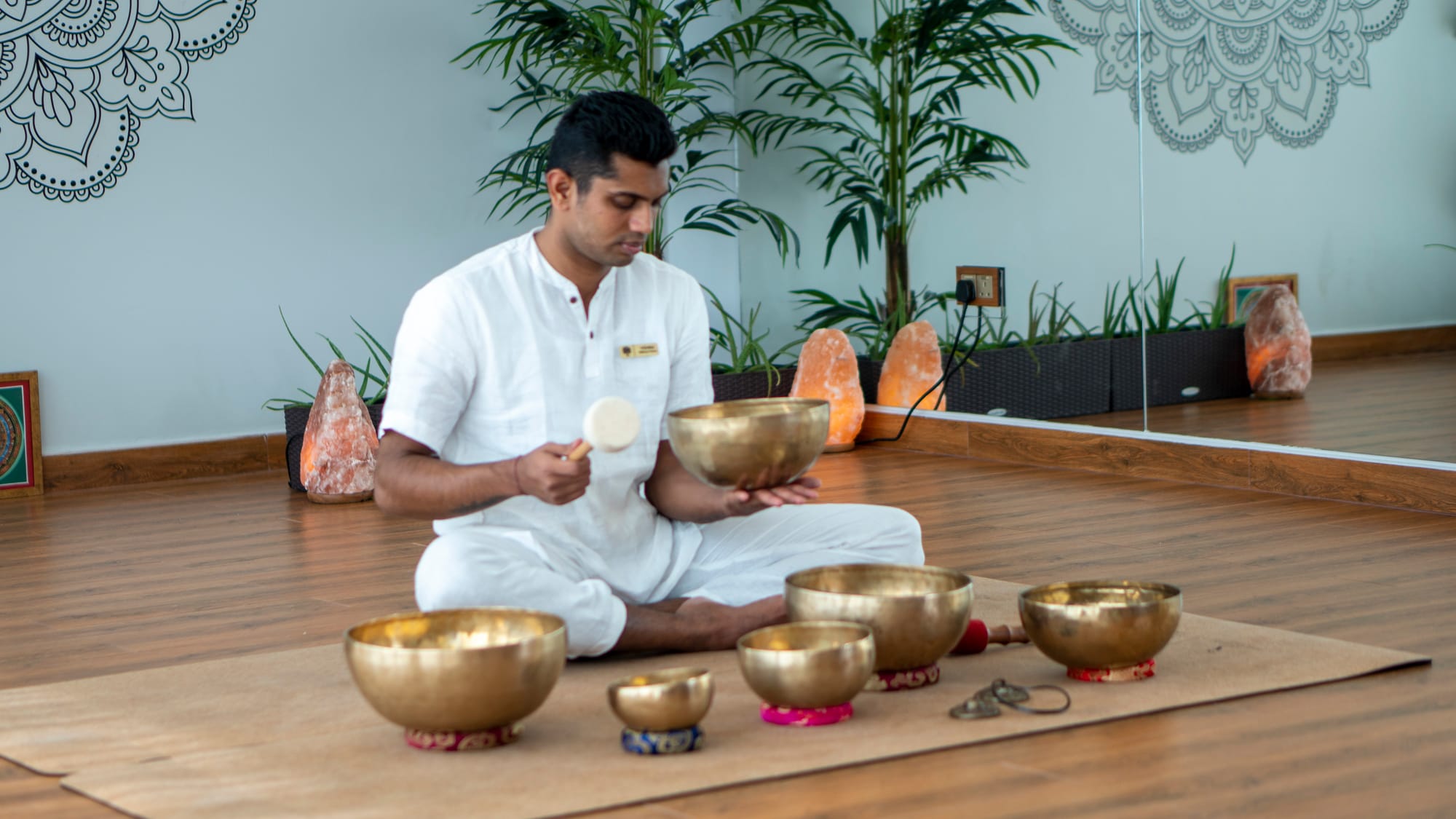
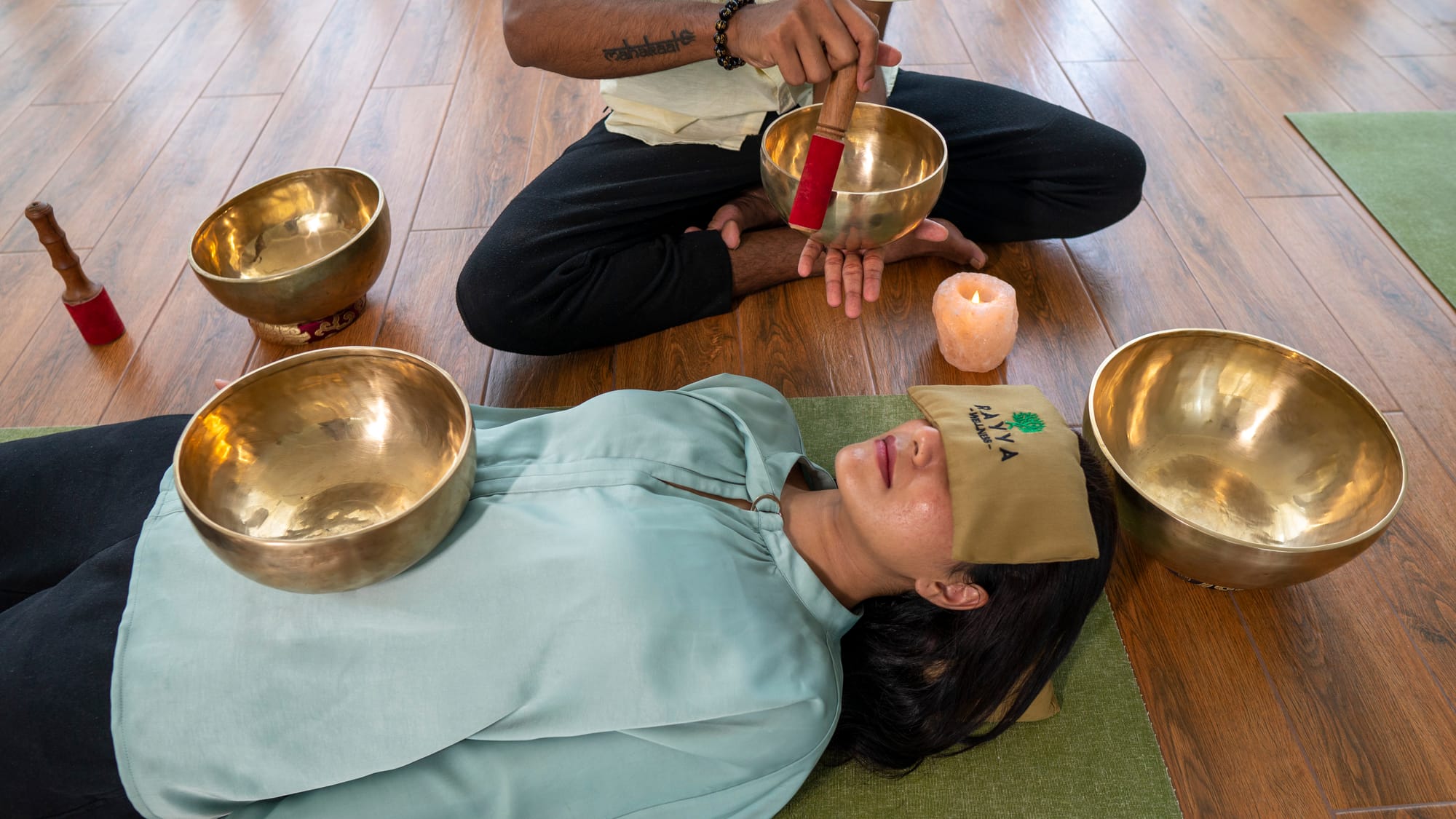
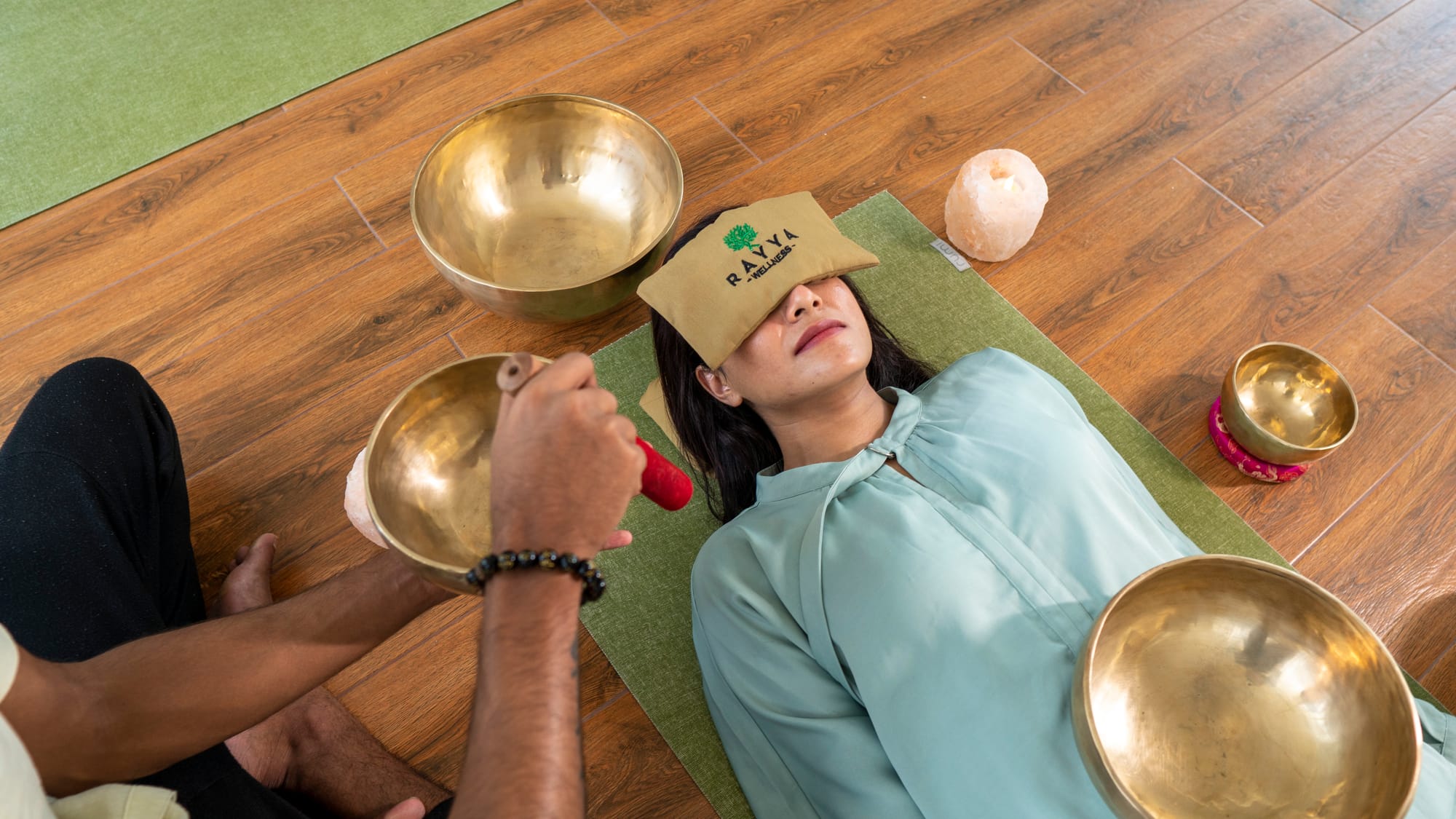
In addition to traditional spa services, we offer wellness elements like cryotherapy, IV therapy, chakra balancing treatments, infrared therapy, halo therapy, oxygen therapy, frequency healing, and sound therapy. We also provide extensive home care solutions, which go beyond retail products to include rituals and lifestyle changes that we endorse for home use.
Our approach ensures that we are not just another spa. We focus on delivering personalized, innovative wellness solutions that address the physical, emotional, and social well-being of our clients. This holistic approach sets us apart in the crowded wellness and spa market.
What steps do you take to ensure the privacy and confidentiality of your clients during their visits?
Firstly, every client is provided with a separate room, ensuring privacy. Secondly, thorough consultation forms and disclaimers are signed, which include legally binding statements. These measures not only protect us but also give clients confidence that everything is handled professionally from the start. Ultimately, it’s an ethical and integrity matter for our staff.
Integrity and confidentiality are core values embedded in our culture. Our staff are trained to handle sensitive information with the utmost discretion.
For example, if a client has a condition like cellulite, our staff would never bring it up in a dismissive manner. They would offer recommendations discreetly and professionally. Once the client leaves the treatment room, the details discussed are confidential and not shared or discussed further.
We maintain a high level of confidentiality and integrity. Clients should always feel safe. Consultations and sensitive discussions are never conducted in open areas. We ensure these interactions happen in private, secluded settings to maintain client comfort and confidentiality.
Many businesses in Dubai adopt a service model that involves highlighting customers' perceived faults to sell their products or services, a practice that has become a cultural inside joke. What is your perspective on this approach?
Yes, this practice is quite prevalent. But who is really at fault here? From my perspective, and from what I see repeatedly at conferences and summits, the blame often lies with the managers, directors, and owners rather than the customers. If you don't teach people how to drive a car, how can you expect them to use the keys and drive it properly? Of course, they’re going to crash the car. This analogy applies to our industry as well.
I often hire spa directors from extremely reputable brands, and when I start working with them, I realize there is no proper training or understanding of what this industry needs. This lack of training is dangerous. It is the responsibility of the owner, director, or manager to thoroughly explain to their therapists how to provide home care.
In a nutshell, it’s very simple: you need to establish trust and rapport with your client. Identify a true concern.
If you don’t have dry skin, why would I give you products for dry skin? That’s selling, not recommending. As a therapist, if I work on you for an hour, I will find something, 100%. Maybe lactic acid build-up in your upper back, or a lack of collagen in certain areas. I will identify something and tell you about it.
First, I will compliment you on the good aspects: your beautiful, radiant skin, your great body shape, and so on. Then, I will point out something that might not be as you like and offer a solution. I will provide you with a product or treatment to address this concern, but it’s up to you whether you take that opportunity. If you have a concern about fine lines and wrinkles, and what you’re currently doing isn’t working, then I can help.
However, this should only be done for genuine concerns that have been established. Otherwise, it’s just a pushy sales approach, which can be offensive. For example, giving someone a cellulite cream who doesn’t have cellulite could lead to them feeling insulted and never returning. Home care is crucial, but it needs to be professional and based on real concerns, not just sales tactics.
In what ways does Spa Wellness Project Management engage with and contribute to the local communities in which you operate?
We actively engage with local communities through a variety of platforms and activities. While social media serves as a key communication channel, we also participate in events, partnerships, and affiliations. We collaborate with major gyms like Fitness First, Top Stretch, Pure Gym, and many other fitness and wellness affiliates.
In addition, we partner with several banks and airlines. These affiliates often reach out to us, and we engage in barter agreements and other cooperative efforts. For instance, when Fitness First opens a new club, they invite us to participate in the opening day with a setup, kiosk, or roadshow. Similarly, if Top Stretch is conducting activation classes on the Palm, we might set up a pop-up for sports massages.
We organize a range of events such as art breakfasts, candle-making workshops, and sound healing sessions. Recently, we hosted a "Mummies and Me" retreat on the Palm, inviting local moms and their children for a morning of arts and crafts. Our sunset yoga and full moon yoga sessions at beautiful locations have also been very well received.
These activities keep the community engaged and aware of our services. We have numerous affiliations and partnerships, and our marketing director leads our social media efforts with great effectiveness. She excels at communicating the messages we want to convey.
By maintaining these engagements and contributing to the community, we ensure that we remain a vital and appreciated part of the local wellness and fitness landscape.
How do you identify and recruit key team players who align with your vision and the message you aim to convey?
I always say you don’t find people; people find you. Souls connect—that's what I always say.
I can give you one example. It's just so weird, but one of my good friends, Arlette Richter, the hotel manager from the Marriott on the Palm, recently went to Germany. She then sent me a picture on WhatsApp with her and my cousin, and I was like, "What? Are you kidding me?" These two went to a bachelor party together in the south of Germany and met each other there by a complete coincidence. How can this be? It's like a one-in-a-million chance.
I believe that souls connect. My marketing director found me, and my HR director found me. Somehow, it all connects. There's a purpose, and it's all laid out already. I believe in that. I'm very spiritual when it comes to these things.
What measures are you taking to ensure Spa Wellness Project Management operates sustainably, and how do you integrate these practices into your services?
Brands are increasingly moving towards more sustainable practices, and corporate sustainability is our key focus. Both Rayya Wellness and Wellbeings are fully organic, sustainable, and purpose-driven brands. Often, suppliers, product vendors, and retailers approach us wanting to place their products in our spas and centers. We give a hard no to those that are not sustainable or clean in terms of ingredients. It's very obvious when there is no focus on sustainability.
All our brands and everything we have on the shelves and use in our wellness treatments are organic. For example, one brand we work with, Ixora, even considers the emissions from planes and ships that transport their products. They focus on reducing their carbon footprint, which aligns beautifully with our values.
Authenticity is very important to us. We ensure that 2% of our annual profits are set aside for sustainable and environmental work, as well as helping charitable organizations.
We do a lot in this regard, and there will be more in the future. Sometimes we face hurdles in activating certain initiatives due to regulations. For instance, organizing charitable events often requires involvement from the Red Cross, and we have to navigate these requirements carefully.
Therefore, we find it easiest to set aside 2% of our profits for this type of work and communicate our contributions towards the end of the year. This approach ensures that we maintain our commitment to sustainability and support important causes.
With the vast array of information and products available, how do you decide what to stock on your shelves?

I don't want to sound too cocky, but I've been doing this my whole life. I can tell by looking at the packaging and ingredients whether a product is suitable.
I know all the parabens, sulfates, and other harmful ingredients that I don't want to see in a product. It's also important to examine the composition. An active ingredient present at 0.001% is not really an active ingredient. This is how companies can mislead you, similar to tactics used in the food industry. For example, they might sell you cheese nachos that contain E712 powder, which merely mimics the appearance of cheese.
Another useful tool I recommend is an app called Think Dirty. Despite the name, it's incredibly effective. Anyone can download it and use it to scan a product's QR code. It will tell you the toxicity level and whether the ingredients are safe. As long as a product has a barcode, you can find it on that app.
What are your future plans for growth and expansion, and how do you plan to adapt to evolving trends in the wellness and spa industry?
A good friend of mine in Singapore, Trent Munday, recently made a very impactful statement: "Are we telling the consumer what they're supposed to do, or is the consumer telling us what they're supposed to do?" Often, as operators, we believe in certain trends, like Korean skincare, which is widely recognized as the best. However, does that mean I need to transform my entire spa into a Korean beauty spa? No, it doesn't. We need to balance trends with commercial sense, as trends can disappear quickly.
What will not disappear is our core business, which, for the spa industry, is massages. If you ask any spa operator what their number one treatment is, they will likely say massages. In fact, over 80% of our business is derived from this treatment.
So, if a significant portion of our business comes from massages, why should we overhaul our entire spa to follow a trend? Everything else is a nice-to-have. We offer various wellness treatments that differentiate us from others, but guests primarily book a good 60-minute massage.
I sometimes follow trends and may have one or two retail items that align with them, but I don't need to adopt every new trend that comes along. I focus on commercial viability and what our clients truly want. I don't rely on magazines to dictate our offerings. Overloading ourselves with trends can be dangerous because it's linked to costs.
While it's important to be aware of trends, our growth and expansion plans will prioritize our core business and customer needs over fleeting trends. We aim to maintain our unique offerings and ensure we continue providing the services that our guests value most.
In an era where social media significantly impacts businesses and consumers wield considerable influence, do you find it challenging to remain true to your core values?
Yes, it's dangerous, and it's a double-edged sword. I believe Instagram, especially, should do more to control this influence. I'm not very versatile in the Instagram world, but I know that too much power is given to influencers.
I feel sorry for certain businesses and big corporations. Even the smallest negative incident can be so damaging to an organization or business, and it might not even be their fault. Instagram, for me, is not a proper form of communication.
It's similar to WhatsApp. If you have a fight with your boyfriend over WhatsApp, it can cause big problems because it's not a form of communication. It's loaded with perceptions, judgments, and misinterpretations. Instagram is very similar; you can perceive things very wrong. Even trends can be perceived incorrectly based on how they are presented.
As I mentioned earlier, we believe in word of mouth and being the best at what we do. We rely heavily on the return business of our established customers. I believe we always deliver, which makes us feel safer in this regard. Just a week ago, I had my quarterly meeting with all 45 or 46 receptionists and told them, "You are the best at what you do. Always remember that and work accordingly."
When influencers come in, they receive the best service. I feel safe with any influencer visiting our centers because I know the quality we deliver. However, for other businesses, it's dangerous. Influencers have too much power. It's shocking how little some company owners know about tools like Social Blade, which can check an influencer's credibility. They see 50,000 followers and think it's worth giving them free services, not realizing those followers might be bought. It's a curse and a blessing, a double-edged sword. It's a difficult balance to maintain.
How do you incorporate customer feedback into your operations, and where do you draw the line in implementing such feedback?
When customers visit any business, including a restaurant or spa, they come with certain expectations. Our goal is to not only meet these expectations but exceed them. To achieve this, our staff must be empowered to make decisions that delight our customers. This empowerment often leads to positive guest comments.
We gather feedback through TripAdvisor and our internal feedback forms. We don’t distribute these forms to all guests, as it would be overwhelming, but we ensure that about 20 to 30% of our guests receive them. The feedback form is a sealed envelope to maintain confidentiality and contains a set of questions.
One of my favorite questions is, "If there would have been one thing that we could have done better today, what would it have been?" This open-ended question often provides valuable insights that specific rating questions might not. This feedback is then implemented accordingly.
In hospitality, the customer is never at fault. The customer should always feel right and heard. When an issue arises, we address it by saying, "Let me deal with it. I’m very sorry. Let me look into it," even if we suspect something is amiss. This approach ensures the customer feels welcome and taken seriously. We then conduct a thorough investigation.
One significant issue in our industry is sexual harassment, given the nature of body contact and the diversity of nationalities. Some guests may expect additional services or behave condescendingly toward therapists. We have strict protocols in place to prevent escalation. For instance, we recently had a guest who became so angry that he damaged the spa’s interior. Another incident involved a guest slamming a glass door so hard that it shattered. Handling such situations involves blacklisting and sharing names and numbers to prevent reoccurrences.
Problem resolution is key, whether related to sexual harassment or other issues. Our focus is on resolving problems to the satisfaction of both guests and staff. Unfortunately, some guests know how to manipulate situations to get free services, but we are not desperate or naive.
Our therapists are trained to ask three times during the treatment if the guest is comfortable, if the pressure is okay, if the music is suitable, and if the temperature is right. If a guest tells us after the treatment that it was unsatisfactory because the room was too cold, and they didn’t speak up during those three checks, we’re skeptical. We might still offer a small compensation, like a discount on their next treatment, but we won’t penalize the therapist for such feedback. That’s where we draw the line.
How do you forecast revenue growth for your company, considering the upcoming openings in 2024?
The key factors we discussed earlier are crucial here. I'm not a typical retailer like Sharaf DG; I'm a service provider that operates with energy and purpose. Our focus isn't directly on the money. Instead, the money comes from providing quality, love, creating memorable experiences, and treating guests with genuine care, not just seeing them as dollar signs. When guests feel special and their preferences are acknowledged, they are more likely to return and spend money.
The COVID pandemic humbled us all. My brands, founded before COVID-19, already had wellness at their core, so I understand the importance of mental and physical well-being. We were deprived of these things during the pandemic, and now we truly appreciate their value. In my line of business, revenue generation comes from focusing on quality and people first; the revenue follows naturally.
I also emphasize to my staff not to focus solely on revenue. If you focus only on revenue, the wellness aspect gets lost. Prioritize quality, people, and outcomes, and the revenue will naturally follow.
We collaborate with many hotel partners. For example, at St. Regis Abu Dhabi, I worked with Moustafa Sakr, an exceptional GM and one of my mentors. I managed to attract business from Emirates Palace to my spa by offering free paraffin treatments with all services. Gents received free back paraffin, and ladies received free foot paraffin with a head massage. Moustafa initially disliked the idea due to the costs involved, but I convinced him to try it. The quality enhancement was so significant that guests couldn't resist, leading to a huge success for us.
What I'm trying to convey is that sometimes you have to educate GMs and owners, especially in a revenue-share model. As a wellness operator, we must do things differently and not just focus on the money.
Our forecast for revenue growth in 2024 is based on maintaining high quality, providing excellent service, and ensuring our guests feel special and well-cared for. This approach will naturally lead to increased revenue.
As a pioneer in integrative hotel wellness concepts, how do you foresee the future for yourself and your business?
It's a difficult question to answer right now because I'm going through a lot in my life. Personally, I think I need to calm down a little bit and slow down. It's almost an entrepreneurial disease; all the entrepreneurs I know have the same problem. We see opportunities everywhere and just want to grow the business.
For my future, I wish to focus more on myself, which is very important for someone in the wellness industry. For the business, we plan to continue growing and scaling over the next two years.
We are already the largest spa and wellness operator in the Middle East, but we will scale even further. We have received many franchise requests from Saudi Arabia and will be undertaking some significant projects there, which I can't name yet. However, I can tell you they will involve building a whole wellness city. We will likely start franchising very soon.
In the ideal scenario, I don't want to do this forever. Eventually, I would love to sell the business and focus on one amazing center, perhaps in a place like Bali. Additionally, we are increasing our focus on biohacking and longevity. We will be enhancing our partnerships, particularly with our partner Atelier Clinic, which we recently onboarded. While we won't merge with medical wellness, we will focus more on biohacking and longevity.
We have many new openings in the pipeline this year, including three more properties that will bring our total to 30 outlets. Although I can't talk about them yet, these developments are very exciting for our future.
Watch the full interview:
Also Read:
